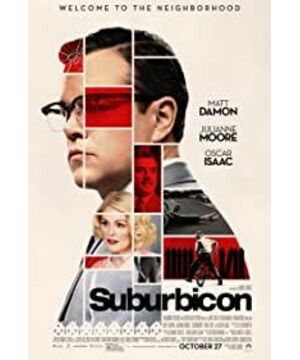Said that the most tragic scene I have ever seen was when a certain tongue forced to play "Wuji" after many years.
The film is reinterpreted with the so-called Chinese culture.
The paleness of his words and the weakness of his rationale really make people feel that he is praising "The Promise" at all.
Instead, it was like a large-scale whip corpse scene after many years.
But observing the audience's feeling about "Murder in Lost Town" is that everyone is a little lazy to interpret the film.
The result is that the movie is said to be very boring and lacking in depth.
In fact, I thought it was a very interesting movie, so I took it out and interpreted it "appropriately".
As Changying's first translated production this year, this movie is indeed very fascinating. (I will share my thoughts with you after watching the Mandarin version.)
The film is still very unfriendly to Chinese audiences. It tells about the old events of the United States in the 1950s, and there are real differences between times and cultures.
With all due respect, the main group of moviegoers today may not be clear about what happened in China 60 years ago.
Without going into details about the plot, the prototype incident is a turmoil caused by the black family moving into the pure white community.
Compared with the film adaptation of the overwhelming real events, this film does not strive to restore the authenticity of the event, and even uses it as a side story.
The main line is the murder of the next door.
But too little attention was paid to this family, and everyone thought it was a combination of the perverted father, the unlucky mother, the aunt and uncle Xiong, and the poor child.
However, a question in the discussion forum about the different religious beliefs in the family gave me a perspective on deconstructing the family.
Father Gardner is an Anglican (Anglican) believer, while the mother's family are Catholic believers. (For a detailed analysis, see my answer in the discussion area.)
There are actually traces of family conflicts arising from different beliefs.
For example, the fat uncle questioned his brother-in-law Gardner's ability to raise his nephew because of his different beliefs, and also regarded his deceased sister as a pillar of faith in the family.
And Gardner also saw that his brother-in-law was very upset, and his dissatisfaction with his involvement in family affairs could be seen.
In fact, thinking of Gardner's last sentence to Nicky, "I know who is useful to this family, and I know how to do it for this family." The product of debt crisis and adultery with sister-in-law.
It feels more like there is a consideration of eliminating the influence of the wife at home.
This is not a reading of a conspiracy theory.
Many people feel that the separation of the main storyline and the sidelines is a serious problem, and the protagonist's family basically shows little attitude towards their neighbors.
But after careful review, the mother supported Nicky to be close to the black people, but the father finally ordered Nicky not to play with black children.
I think it's pretty obvious that Gardner wasn't ignorant of black people, but externalized through the reactions of the townspeople.
In my opinion, the children's perspective that has been interspersed in the film, on the one hand, has the function of revealing the truth, and on the other hand, it also implies the theme of growth.
The experience of the Gardner family is not only an absurd farce, but also a baby boomer generation, and it is also the process of growing up in the middle-aged and elderly people in the United States.
Nicky grew up under the influence of both Anglican and Catholic beliefs, first befriended black people, and his father asked him to stay away from black people. After all his family died, he went out and started playing with his black friends again.
It feels like this is how the Americans who grew up at that time gradually got rid of the thinking of discriminating against blacks and finally got along well with blacks.
So this is not just a mediocre work with black or politically correct skins, but a work that tries to deconstruct the step-by-step progress of anti-discrimination.
Of course, I didn't give a very detailed description. I'm going to update this review after I've made up my knowledge about Protestantism in the United States, the immigration situation at that time, and the anti-discrimination struggle of blacks.
View more about Suburbicon reviews











